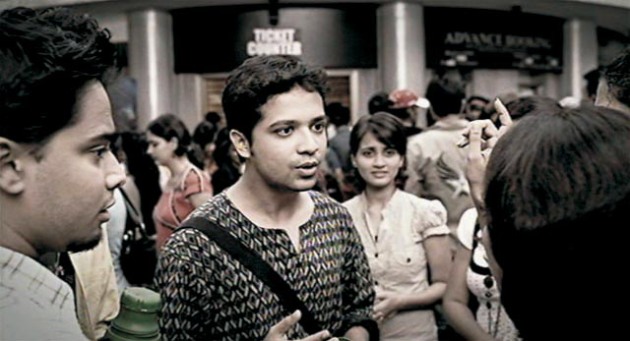Times have changed and with that have changed strategies of communication from brand to consumers. Earlier advertising revolved around the creation of an ad, expertly crafted message conveyed through traditional media and consumed by end audiences. The problem with this kind approach is the messages are very passive in nature. Audiences don’t get the chance to communicate back with the brand. Today’s consumers are more interested in interacting with brands and new media are effectively enabling them to do so. Hence just creating ads with crafted messages don’t serve the brand purpose today. This is where ‘ACTS NOT ADS’ philosophy fits well in today’s communication scenario.
The ‘ACTS NOT ADS’ Philosophy:
The ACTS NOT ADS philosophy connects people and brands on a whole new level, where a brand’s human purpose is displayed, and where consequently consumers feel an emotional response. To put simply, the marketing messages must ignite people to drive behavioral change that lead to social movements. The key is to understand your target audience, understand why they buy your products. Once you have a thorough understanding of your target audience, you can create compelling content that is relevant to your audience. Relevant content is sure to increase the effectiveness of your campaign. Marketing messages are now more participatory. In this era, consumers themselves can play the critical role in conveying the brand promise while energizing others to greater levels of awareness and inspired action.
Earlier engaging with consumers was easy as there was less interference. But today we are living in an interconnected word and customers want to interact and converse with the brand. The need is to engage with the consumers; hence, what is needed today is ACTS NOT ADS. If you succeed to elicit action from the people, they play a key role to build the brand through their participation and involvement in it. In the end, advertising agencies do not create iconic brands, people do.
BBDO India successfully implemented the philosophy of ACTS NOT ADS in its ‘Shave India Movement’ campaign for Gillette India.
Gillette has been an undisputable leader in men’s grooming for over 100 years. Gillette wanted to generate sales and excitement for the Mach3 razors and turn the call to action for men to accept the clean-shaven look. Indian men were shaving once a week. The perception was that stubble looks cool and was desirable to women. But a Nielsen survey revealed Indian women prefer a clean shaven look. Gillette embraced this opportunity and came up with ‘Shave India Movement’ with the tagline – “No more excuses for men not to shave!” The aim was to increase trials of Gillette Mach3 turbo sensitive razors by dropping the price and encourage a more clean-shaven look.
To achieve this, Gillette created W.A.L.S. (women against lazy stubble) to get women to encourage men to shave. Gillette gained support of average women in multiple cities across the country and utilized national celebrity endorsements.
The idea started on Facebook and spread like wild fire! Before we knew it, media channels had picked it up and front pages of mainline newspapers like The Times of India were discussing the issue. It became national conversation. The idea had gained a life of its own!
Women became bolder. They began to shave men in public! Over 90 malls in India had special Gillette booths where queues of men stood for hours to get a shave from pretty women. This is what you call positive change driver, a social movement. The result of all this was the brand garnered over Rs 10 cr worth of free media and a 400 per cent growth in shares for the Gillette Mach 3.
Another similar campaign that effectively used the philosophy of ‘ACTS NOT ADS’ are ‘Jaago Re’ by Lowe Lintas for Tata Tea.
Jaago Re TV campaign made a successful effort to wake up an apathetic nation to the issues that affect it. The challenge was to smoothly transition from being an ‘awareness’ initiative to an ‘action oriented’ tool that Indians could use to make a real change in the country by partnering with activists and organizations who had the means to make it happen. At the centre of the campaign was the website http://www.jaagore.com which as of today supports 10 key social issues.
The result of this act is a story in itself. Thousands of citizens actively participated with the website and volunteers fuelled over 200 + live projects.
